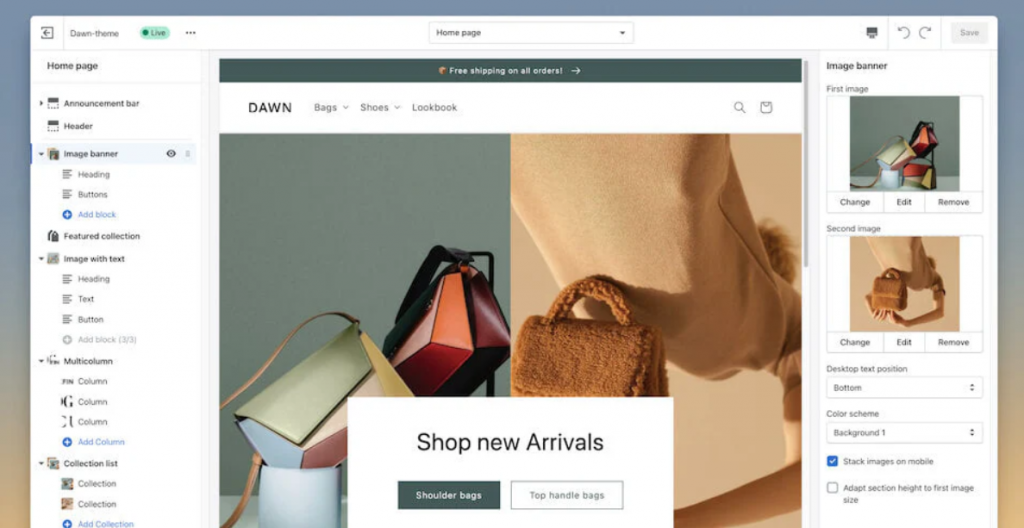
Are you ready to transform your Shopify store into a traffic magnet? In today’s digital landscape, having an eye-catching website is just the start; driving organic traffic is key to turning visitors into loyal customers. Enter SEO—your secret weapon for increasing visibility and sales! Whether you’re a seasoned entrepreneur or just starting out, optimizing your Shopify store for search engines can feel overwhelming. But fear not! In this blog post, we’ll break down essential tips and tricks that will help you climb the ranks of Google’s search results and attract more targeted visitors to your shop. Get ready to supercharge your online presence and watch those sales soar as we dive into the world of SEO optimization tailored specifically for Shopify stores!
Importance of SEO for your Shopify store
SEO is crucial for any Shopify store aiming to thrive in the crowded e-commerce landscape. With millions of sites vying for attention, optimizing your store ensures you stand out. Search engines are often the first stop for potential customers. A well-optimized store makes it easier for them to find your products through organic search results. You can significantly increase visibility by enhancing various elements of your online shop. Moreover, effective SEO strategies lead to higher conversion rates. When users land on a site that aligns with their search intent, they are more likely to make a purchase. Additionally, investing time in SEO builds long-term equity in your brand’s online presence. Unlike paid ads that stop delivering once you cease spending, strong SEO efforts continue driving traffic over time without ongoing costs. Ultimately, neglecting SEO means missing valuable opportunities and potential sales from eager shoppers searching for what you offer.
Understanding keywords and how they impact SEO
Keywords are the foundation of SEO. They represent what users type into search engines when looking for information or products. Understanding keywords involves knowing your audience’s language. Think about their needs and questions. This insight helps you choose relevant terms that can connect them to your store. Long-tail keywords, which are longer phrases, often have less competition but can drive targeted traffic. For instance, someone searching for “organic cotton t-shirts” is likely more ready to purchase than someone simply typing “t-shirts.” Incorporating these keywords strategically in product titles, descriptions, and blog posts enhances visibility on search engines like Google. However, avoid keyword stuffing; it’s not just ineffective but can also harm your rankings. Regularly researching trending keywords allows you to adapt quickly as consumer interests evolve. Staying ahead will keep your Shopify store competitive and relevant in a crowded marketplace.
Tips for optimizing product pages for SEO

Optimizing product pages is crucial for improving visibility. Start with compelling titles that include relevant keywords. A clear title helps both search engines and customers understand what you offer. Next, focus on your product descriptions. Craft unique content that highlights features, benefits, and use cases. Avoid generic text; instead, let your brand’s voice shine through. High-quality images play a significant role too. Use descriptive alt tags to improve image SEO while enhancing accessibility for visually impaired users. Don’t forget about headers! Utilize H1s and H2s to structure your content logically. This organization helps search engines crawl your page more effectively. Lastly, encourage user-generated content like reviews or FAQs at the bottom of the page. Not only does this enrich your site’s content but it also builds trust with potential buyers.
Importance of backlinks and how to build them
Backlinks are like votes of confidence for your Shopify store. When other reputable sites link to yours, search engines view it as a sign of authority and trustworthiness. This can significantly boost your SEO ranking. Building backlinks requires strategy. Start by reaching out to bloggers or influencers in your niche, offering them value in exchange for a mention or link. Guest posting on relevant websites is another effective way to create high-quality backlinks while showcasing your expertise. Engaging with online communities such as forums or social media groups can also help you establish connections that lead to backlink opportunities. Share valuable insights and contribute meaningfully without being overly promotional. Finally, consider leveraging partnerships with complementary brands. Collaborations often result in mutual linking arrangements that benefit both parties while enhancing visibility across different audiences.
Using Google Analytics to track and improve SEO efforts
Google Analytics is a powerful tool for any Shopify store owner looking to enhance their SEO strategy. It provides valuable insights into how visitors are interacting with your site. By tracking user behavior, you can identify which pages attract the most traffic and which ones need improvement. Look at metrics like bounce rates and average session duration to gauge engagement levels. Utilize the acquisition reports to see where your traffic is coming from—whether it’s organic search, social media, or referrals. This data helps you understand what channels are most effective in driving visitors. Setting up goals within Google Analytics allows you to measure conversions tied directly to your SEO efforts. Monitor these closely; they reveal how well your optimization strategies translate into sales or leads. Regularly review this information to adapt and refine your approach. Data-driven decisions will lead you closer to achieving greater visibility in search engine results.
Utilizing social media platforms to drive traffic to your store

Social media is a powerful tool for driving traffic to your Shopify store. It’s where potential customers spend their time, and tapping into that can be a game changer. Start by identifying the platforms most frequented by your target audience. Instagram and Pinterest are fantastic for visual products, while Facebook offers broad reach and engagement options. Create engaging content that showcases your products in action. Use eye-catching images, videos, or stories that highlight unique features or customer testimonials. Don’t forget to include direct links back to specific product pages. Engage with your followers regularly. Responding to comments or messages creates community and trust around your brand. Host giveaways or promotions exclusively on social media to encourage sharing and attract new visitors. Collaborate with influencers who align with your brand values. Their endorsement can introduce your store to fresh audiences eager for recommendations they trust.
The role of content marketing in boosting SEO for your Shopify store
Content marketing is a powerful tool for enhancing the SEO of your Shopify store. By creating high-quality blog posts, product guides, and engaging content, you can attract organic traffic. Valuable content not only informs potential customers but also establishes your brand as an authority in your niche. When visitors find useful information, they are more likely to share it across social media platforms. This sharing increases visibility and drives additional traffic to your site. Incorporating relevant keywords into your content helps search engines understand what topics you’re covering. It boosts your chances of ranking higher for those terms. Moreover, regularly updated content keeps users returning to your store. Fresh articles or updates signal to search engines that you’re active and engaged with current trends in e-commerce. Engaging storytelling about products can resonate deeply with customers while optimizing their buying journey through informative insights.






